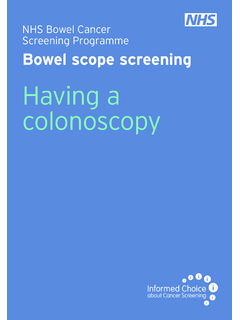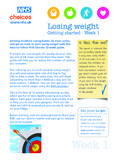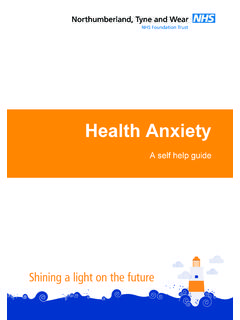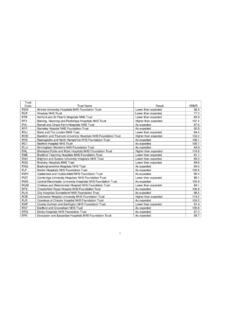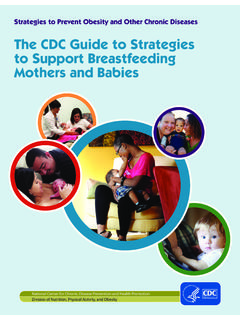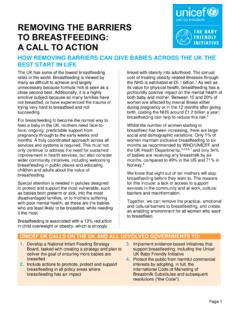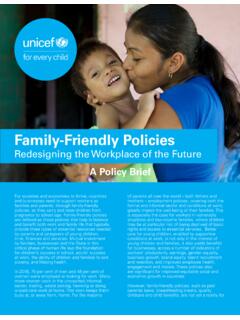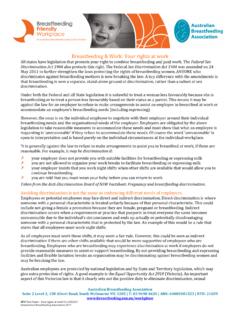Transcription of Breastfeeding and work - NHS
1 Breastfeeding and workInformation for employees and employers2 You don t need to stop Breastfeeding just because you re returning to work . Many working women find ways to continue Breastfeeding their baby. And employers have certain obligations towards Breastfeeding women. This leaflet explains how you can breastfeed and work . The last section sets out how employers can make it easy for you to do so; show this leaflet to your can I continue Breastfeeding while working?You have several options. You can: arrange for childcare close to work , so that you can breastfeed during breaks or before and after work ; express milk (taking milk from the breast by hand or using a pump) so that someone else can feed your baby while you are at work ; or ask your employer for flexible working hours, arranged around you want to breastfeed while working, you must tell your employer in writing in advance.
2 They will then be able to make can I express milk at work ?You can express milk by hand or by using a pump. Friends who have expressed milk before, midwives and health visitors can advise on what kind of pump might be best. It is a good idea to buy a pump a few weeks before returning to work , and practise using it or expressing by hand. This will allow your breasts to get used to letting down when expressing, and you can see how long it takes to express milk. You can build up a store of expressed milk to have in reserve, which will take the pressure off you for your first few days back at sure all equipment is sterilised before you should I store breastmilk?
3 Milk should be stored in a fridge and carried home in a cool bag. Ask your employer to provide a fridge if you don t already have access to can be stored in the fridge for up to 5 days at 4oC or lower (usually at the back of the fridge). Breastmilk can be stored for up to 2 weeks in the ice compartment of a fridge or for up to 6 months in a tips Label and date expressed breastmilk before putting it in the fridge or freezer. Have a trial run with childcare before returning to work . Be prepared by keeping an extra top and some breastpads at work . Defrost frozen breastmilk in the fridge and don t refreeze it once thawed.
4 If you are using milk within 5 days of expressing it, it is better to store it in the fridge than in the out more about breastfeedingGeneral information about Breastfeeding : or order Pregnancy and work what you need to know as an employee from or order A guide for new and expectant mothers who work from the Health and Safety Executive website, website also has a good section about your rights as a Breastfeeding for employersWhy should employers support Breastfeeding ?As well as there being certain legal obligations to Breastfeeding mothers, supporting Breastfeeding has business benefits.
5 These include: reduced absence due to child sickness (breastfed babies are generally healthier); increased staff morale and loyalty, and a subsequent higher rate of return to work ; lower recruitment and training costs; and an extra incentive to offer potential can employers help?Employers can have a policy to support Breastfeeding that includes: a break allowance so that mothers can express milk; provision of a clean, warm and private room (not the toilet) for expressing; a fridge to store expressed milk; and flexible working hours for Breastfeeding mothers. Make sure your employees are aware of your policy before they start their maternity does the law say?
6 It is for the mother to decide how long she wishes to breastfeed, and returning to work does not mean that she has to stop. On returning to work she should provide her employer with written notification that she is Breastfeeding . Her employer must then conduct a specific risk Workplace Regulations and Approved Code of Practice require employers to provide suitable facilities for pregnant and Breastfeeding mothers to Health and Safety Executive (HSE) recommends that it is good practice for employers to provide a private, healthy and safe environment for Breastfeeding mothers to express and store milk. It is not suitable to use toilets for this can find out more about this on the HSE website, , or by phoning their helpline on 0845 345 HSE also publishes a useful guide, New and expectant mothers at work : A guide for employers (HSG122), which can be purchased from or 01787 881165 at Workplace booklet 04/08 200k (ESP) Produced by COI for the Department of Health
